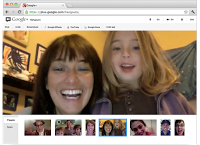Programmatically Scheduling Hangouts

One pretty common request around Google+ hangouts is the ability to programmatically schedule them, and have a URL which everyone can join in the future. This is useful for being able to send out links beforehand, and make sure people are ready to go.
While there isn't a specific API for this at the moment, there is actually a workaround that makes use of the Hangout integration into Google Calendars.
In the Calendar you want to use to create hangout entries, go to the Settings page under the cog icon on the top right, and enable automatic hangout creation:
This means that any event created on that calendar will automatically have a hangout URL generated, and that can be retrieved via the API. So, to programmatically create a URL for a future hangout, create an event using the calendar insert API. This example is using the PHP client library.
$event=newGoogle_Event(); $event->setSummary('Future Hangout'); $event->setLocation('The Internet!'); First we set the …
While there isn't a specific API for this at the moment, there is actually a workaround that makes use of the Hangout integration into Google Calendars.
In the Calendar you want to use to create hangout entries, go to the Settings page under the cog icon on the top right, and enable automatic hangout creation:
This means that any event created on that calendar will automatically have a hangout URL generated, and that can be retrieved via the API. So, to programmatically create a URL for a future hangout, create an event using the calendar insert API. This example is using the PHP client library.
$event=newGoogle_Event(); $event->setSummary('Future Hangout'); $event->setLocation('The Internet!'); First we set the …